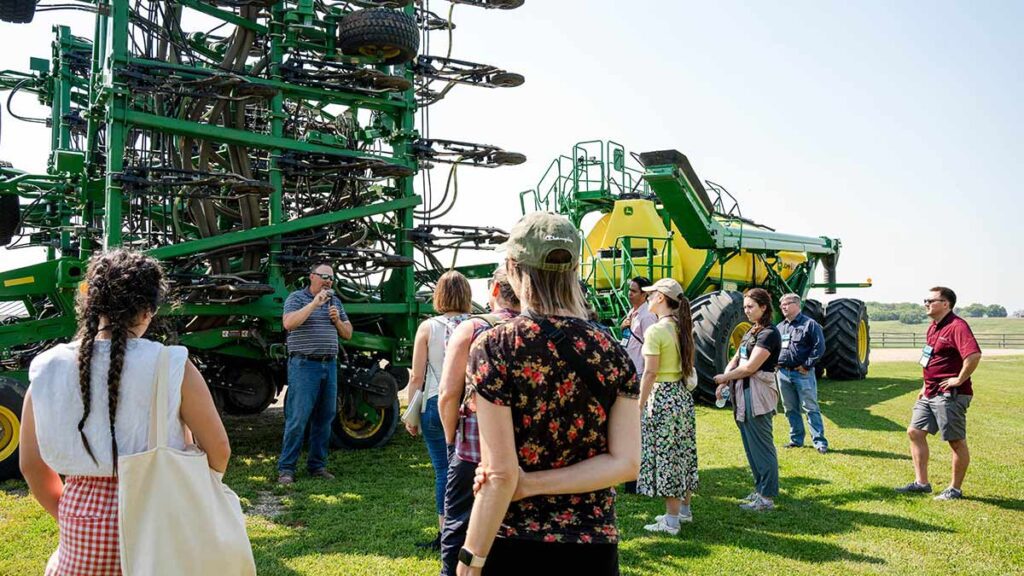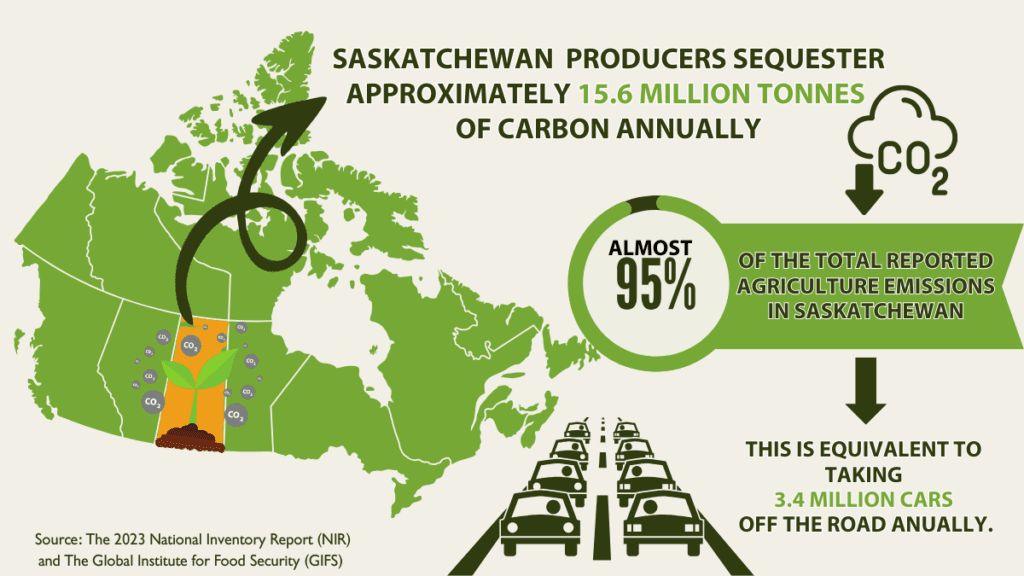The Canadian Centre for Food Integrity’s annual public trust research indicated that in 2024, 48% of respondents were either very (21%) or somewhat (27%) concerned about the environmental sustainability of farming in Canada. Almost the same percentage expressed the same level of concern for the environmental impact of food production in our country. That means almost half of Canadians have concerns about how food is produced in Canada.
These concerns often prompt policymakers to tighten regulations, leading to increased costs and concerns for farmers and agribusinesses. A lack of trust in our processes can hinder innovation and adoption of new farming methods, technologies, and sustainable practices that have the potential to improve food production and environmental impact.
It has never been more important to talk about how farmers grow food. We need to share our successes—and about the areas where we need to strive to do better.
It isn’t always easy to find the words to explain, but it’s not because we don’t have successes to share. We need to do better at gathering and summarizing research results and preparing more bite-sized nuggets of shareable information.
The fact is, sustainability isn’t a catchphrase to Canadian farmers: Canadian agriculture is sustainable agriculture. Through leading best practices and adoption of innovation and technology, agricultural commodities from Canada – and Western Canada in particular – are some of the least carbon-intensive agri-food products in the world.

Here are some research-supported facts to share:
- Canadian farmers are producing some of the least carbon-intensive crops in the world. This is driven by the widespread adoption of innovations and sustainable farming practices that include: no-till and minimal till farming; the adoption of herbicide-tolerant canola; and a robust crop rotation system. (Source: Global Institute for Food Security)
- When soil carbon sequestration is accounted for, Saskatchewan has the smallest carbon footprint compared with other crop-producing nations. (Source: Global Institute for Food Security)
- Saskatchewan producers sequester approximately 15.6 million tonnes of carbon annually (2017-2021) — that’s almost 95 per cent of the total reported agriculture emissions in Saskatchewan. This is equivalent to taking 3.4 million cars off the road annually. (Sources: National Inventory Report, Global Institute for Food Security)
- For every pound of beef produced, we now use 17% less water, 24% less land and produce 15% less greenhouse gases than 30 years ago. These efficiencies have been possible mainly through improved crop yields, superior cattle nutrition, better genetics and technologies such as growth promotants. (Sources: Beef Cattle Research Council, University of Manitoba, Agriculture and Agri-Food Canada, Lethbridge Research Centre)
- Producing a kilogram of beef in North America, Europe or Australia generates half the methane as in Latin America, India or China. (Source: Food and Agriculture Organization of the United Nations)

But facts alone aren’t enough to build trust. Content needs to matter to consumers. Canadians are concerned about food. Food is personal. It’s emotional. It’s a profound part of our identities and is deeply linked to our history, social conscious and internal beliefs.
That’s the goal behind Canadian Food Focus, a national outreach program that is engaging non-farming consumers with information about food and farming. Canadian Food Focus uses a deep understanding of consumer behaviours and belief systems to create content that resonates with their personal and emotional connections to food. Canadian Food Focus is in tune with Canadians’ questions, doubts, fears, uncertainties, beliefs and values based on extensive research, data from CCFI and social listening. This alignment allows CFF to repurpose agricultural industry information and relate it to food, recipes and health.
Canadian Food Focus content is convincing – and enticing – because it’s a direct response to the information consumers are searching for and what matters to them. It is a reliable place consumers can come to find answers and ask questions about food and food production.
Check it out: canadianfoodfocus.org

Penny Eaton
Managing Director, Stakeholder Relations, Canadian Food Focus
Penny Eaton is a farm girl turned communications specialist who works to answer consumer questions about farming and food production. Penny manages stakeholder relations, coordinates events and communications projects and oversees funding requests and reporting.
Before joining our team, Penny established her own consulting firm, providing writing and communications services to a wide base of clients. She earned her Bachelor of Arts degree at the University of Saskatchewan and is originally from a farm near Rosetown, Saskatchewan. She’s a proud Riders fan and probably takes Halloween a little too seriously.
 New Industry Resource For Engaging Consumers
New Industry Resource For Engaging Consumers